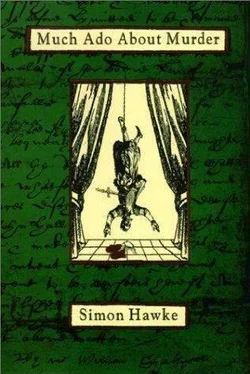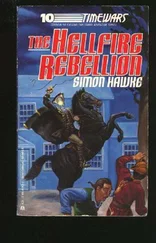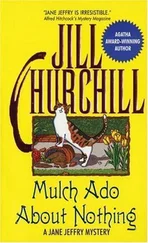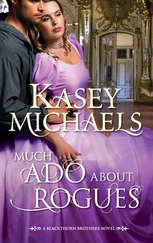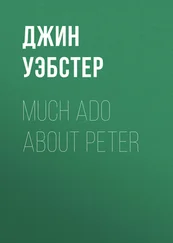Simon Hawke - Much Ado About Murder
Здесь есть возможность читать онлайн «Simon Hawke - Much Ado About Murder» весь текст электронной книги совершенно бесплатно (целиком полную версию без сокращений). В некоторых случаях можно слушать аудио, скачать через торрент в формате fb2 и присутствует краткое содержание. Жанр: Исторический детектив, на английском языке. Описание произведения, (предисловие) а так же отзывы посетителей доступны на портале библиотеки ЛибКат.
- Название:Much Ado About Murder
- Автор:
- Жанр:
- Год:неизвестен
- ISBN:нет данных
- Рейтинг книги:5 / 5. Голосов: 1
-
Избранное:Добавить в избранное
- Отзывы:
-
Ваша оценка:
- 100
- 1
- 2
- 3
- 4
- 5
Much Ado About Murder: краткое содержание, описание и аннотация
Предлагаем к чтению аннотацию, описание, краткое содержание или предисловие (зависит от того, что написал сам автор книги «Much Ado About Murder»). Если вы не нашли необходимую информацию о книге — напишите в комментариях, мы постараемся отыскать её.
Much Ado About Murder — читать онлайн бесплатно полную книгу (весь текст) целиком
Ниже представлен текст книги, разбитый по страницам. Система сохранения места последней прочитанной страницы, позволяет с удобством читать онлайн бесплатно книгу «Much Ado About Murder», без необходимости каждый раз заново искать на чём Вы остановились. Поставьте закладку, и сможете в любой момент перейти на страницу, на которой закончили чтение.
Интервал:
Закладка:
“I said they needed to choose weapons and… so… forth,” said Shakespeare.
“So fourth what?” asked Pope. “They would meet?”
“Nay, they needed to meet first,” replied Phillips.
“I thought they needed to meet second,” Pope said, frowning.
“First, the seconds need to be appointed,” Shakespeare explained, patiently. “Second, the seconds have to meet.”
“Aye, ‘tis why they call them seconds, you buffoon,” said Phillips, tossing a lump of bread at Pope.
“Oh, for heavens sake!” said Shakespeare, getting exasperated. “They do not call them seconds because they must meet second; they call them seconds because they are seconds!”
“So then who is called first?” asked Pope.
“No one is called first!” said Shakespeare, clenching both hands into fists.
“Well, that makes no bloody sense!” said Pope, irritably. “Why would you call someone second if there is no first?”
“Right!” said Shakespeare, leaning forward and fixing him with a direct gaze. “The duelists are called firsts, and the seconds are called seconds. Got it?”
“Second at what?” asked Pope.
Shakespeare rolled his eyes. “At dueling. They shall be second at dueling .”
“The seconds duel?”
“The seconds duel.”
“What for?”
Shakespeare took a deep breath. “Because that is how the thing is done,” he said, struggling to maintain a level tone.
“So the seconds duel second, and the duelists duel first?”
Shakespeare nodded with finality. “Aye, that is it, exactly.”
“So then who comes third?”
Shakespeare’s eyes narrowed into slits. “Nobody comes third,” he said, softly.
“And so nobody is fourth, then?”
“Right. You have it, Pope. Nobody is fourth.”
“So then when do they choose the weapons?”
“Whenever they bloody well want to.”
“Are you quite finished?” Smythe asked.
Shakespeare turned and pointed a finger at him. “Don’t you start with me.”
“Wouldn’t dream of it,” said Smythe. “But if you write your plays the way you tell your stories, then ‘tis no wonder you never get any of them finished.”
“Zounds! Where is my sword?” said Shakespeare, looking around. “I am going to kill him.”
“You do not have a sword,” said Smythe.
“A sword!” cried Shakespeare, leaping to his feet and stabbing his forefinger into the air. “A sword! My kingdom for a sword!”
“Oh, here we go…” sighed Smythe, rolling his eyes.
“Friends! Colleagues! Countrymen! Who shall lend me a weapon with which to run this rascal through?”
“Sit down, you silly goose,” said Smythe, reaching out and taking hold of him by the hips, then yanking him abruptly back down to the bench. Shakespeare sat down so hard his teeth clicked together.
“Sweet merciful God!” he said. “You’ve broken my arse!”
“I shall break a good deal more than that if you do not cease this skylarking at once and get back to the point,” said Smythe, impatiently. “What happened next? What did Ben do after the rehearsal?”
“Why, he went home, I should imagine,” Shakespeare replied.
“What do you mean, he went home?”
“I mean… he went home,” Shakespeare repeated, with a shrug. “What other meaning can there be to that?”
“His closest friend went to confront his intended’s father so that he could break off his engagement and so doubtless be challenged to a duel, and Ben stayed at the Theatre to rehearse and then went home?” Smythe asked, frowning.
“Aye,” said Shakespeare. “He had decided ‘twould be best to let Corwin sleep off his distemper, then go and see him in the morning and find out what had transpired. We had agreed to go together, although, as Ben had told me, if Master Leonardo had already challenged Corwin, then ‘twas doubtful that there was aught that he could do to stop it.”
“Well, ‘tis possible that a challenge could be withdrawn, is it not?” asked Smythe.
“I suppose so,” Shakespeare replied. “But then Ben told me that once Master Leonardo had made up his mind, heaven and earth could not dissuade him. In any event, the point is certainly now moot. Master Leonardo has been killed, and Corwin has been arrested for the murder.”
“Aye, I can well see how it must have gone,” said Kemp. “Corwin went to see the Genoan and doubtless in his anger at having been deceived, he said things to him that could not be borne by any gentleman, whether English or foreign. And so the Genoan then and there flung down his gage and, in a fury, Corwin slayed him, right there in his own home.”
“Do you suppose that was how it happened?” George Bryan asked of no one in particular.
“It could well be,” said Gus Phillips. “Do you recall how Corwin acted on the day that we first met him, right here in this very tavern, when he came in company with Ben? All he could seem to think of was that Italian girl, the merchant’s daughter, Hera. He seemed obsessed with her.”
“I can see how any man would be,” Bryan replied.
“Aye, but to the point of wanting to take her to wife? After seeing her only once?” countered Phillips. “That bespeaks a certain hotness of the blood, do you not think?”
“A man so quick to love would likely be as quick to kill, is that your meaning then?” Smythe asked, raising an eyebrow.
“Does it not follow that hot blood would beget hot blood?” asked Phillips.
Shakespeare smiled. “Methinks what Tuck means, Augustine,” he said, “is that he himself was smitten with a girl upon first sight, and thus far at least, he has not yet murdered anyone.”
“Ah. Well…” Phillips cleared his throat uncomfortably. “No offense there, Tuck, old boy.”
“None taken, Gus,” Smythe replied. “But ‘twould do us all well to remember that if being quick to love also meant that one was just as quick to kill, then most of us would probably be murderers.”
“You know, that was not too bad,” said Shakespeare. “Not bad at all. ‘Twas a decent line, Tuck. Perhaps if I fiddled round with it a bit…”
“For instance, if Pope were to suddenly turn up dead,” continued Smythe, “then we would all think you had done it, Kemp, for every one of us saw you flinging porridge at him and trying to beat his brains out with the ladle. Well, after all… what more proof do you need?”
Kemp folded his arms and harrumphed.
“In all of this debate, there is one thing you all seem to have forgotten,” Molly said. “The unfortunate Master Leonardo’s murder has now left his daughter orphaned in a strange land, friendless, and with her reputation sullied. What about poor Hera? Whatever shall become of her?”
They all fell silent for a moment, thinking of the shy, beautiful young Genoan girl.
“ ‘Tis a hard thing to be left without a family to care for you,” said Molly, quietly. “Harder still when one is in a foreign land.”
“Well, orphaned she may be,” said Smythe, “but neither alone nor friendless, not if I know Elizabeth. She had given the girl her friendship, and Elizabeth is not one to abandon a friend in need.”
“But what about Corwin’s need?” asked Shakespeare. “Surely, his situation is more dire. Neither Ben nor Master Peters can believe that he is guilty of the murder. They both insist that he would not be capable of such a thing.”
“Any man is capable of murder,” Smythe said. “Any man can lose his head and give in to his baser impulses.”
“You, for instance?” Shakespeare asked.
“I am no different, Will,” Smythe replied. “Under the right circumstances, or given enough provocation, I believe that any man could kill. Even you.”
Читать дальшеИнтервал:
Закладка:
Похожие книги на «Much Ado About Murder»
Представляем Вашему вниманию похожие книги на «Much Ado About Murder» списком для выбора. Мы отобрали схожую по названию и смыслу литературу в надежде предоставить читателям больше вариантов отыскать новые, интересные, ещё непрочитанные произведения.
Обсуждение, отзывы о книге «Much Ado About Murder» и просто собственные мнения читателей. Оставьте ваши комментарии, напишите, что Вы думаете о произведении, его смысле или главных героях. Укажите что конкретно понравилось, а что нет, и почему Вы так считаете.
